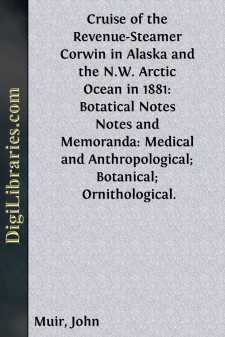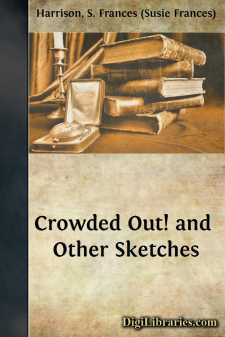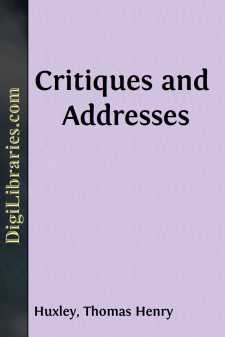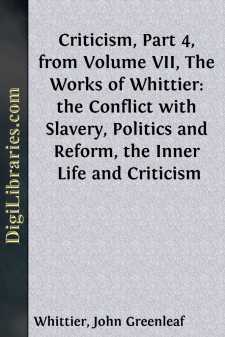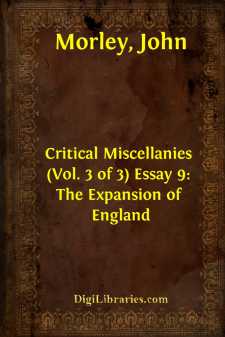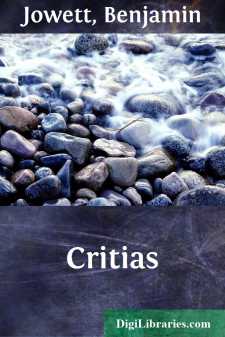Fiction
- Action & Adventure 180
- Biographical 15
- Christian 59
- Classics
- Coming of Age 5
- Contemporary Women 3
- Erotica 8
- Espionage/Intrigue 12
- Fairy Tales, Folklore & Mythology 236
- Family Life 169
- Fantasy 117
- Gay 1
- General 596
- Ghost 32
- Historical 808
- Horror 43
- Humorous 159
- Jewish 25
- Legal 4
- Medical 22
- Mystery & Detective 315
- Political 49
- Psychological 41
- Religious 64
- Romance 158
- Sagas 11
- Science Fiction 730
- Sea Stories 113
- Short Stories (single author) 537
- Sports 10
- Suspense 1
- Technological 8
- Thrillers 2
- Urban Life 31
- Visionary & Metaphysical 1
- War & Military 173
- Westerns 199
Classics Books
Sort by:
by:
Allen Johnson
CHAPTER I FRANCE OF THE BOURBONS France, when she undertook the creation of a Bourbon empire beyond the seas, was the first nation of Europe. Her population was larger than that of Spain, and three times that of England. Her army in the days of Louis Quatorze, numbering nearly a half-million in all ranks, was larger than that of Rome at the height of the imperial power. No nation since the fall of...
more...
by:
John Muir
The plants named in the following notes were collected at many localities on the coasts of Alaska and Siberia, and on Saint Lawrence, Wrangel, and Herald Islands, between about latitude 54° and 71°, longitude 161° and 178°, in the course of short excursions, some of them less than an hour in length. Inasmuch as the flora of the arctic and subarctic regions is nearly the same everywhere, the...
more...
Every Rivermouth boy looks upon the sea as being in some way mixed up with his destiny. While he is yet a baby lying in his cradle, he hears the dull, far-off boom of the breakers; when he is older, he wanders by the sandy shore, watching the waves that come plunging up the beach like white-maned sea-horses, as Thoreau calls them; his eye follows the lessening sail as it fades into the blue horizon,...
more...
Crowded Out. I am nobody. I am living in a London lodging-house. My room is up three pair of stairs. I have come to London to sell or to part with in some manner an opera, a comedy, a volume of verse, songs, sketches, stories. I compose as well as write. I am ambitious. For the sake of another, one other, I am ambitious. For myself it does not matter. If nobody will discover me I must discover myself....
more...
by:
Anonymous
CHAPTER I DEFINITIONS Arena.—The space included by the boundaries of the croquet ground, within which a ball driven out of it is entitled to be placed. Blow.—The stroke of the mallet. A blow opposed to a push. Booby.—A ball that fails to run the first bridge. Bridged Ball.—A ball that has run the first bridge. Central Bridges.—Those in a line between the stakes. Chiefs.—The leaders of the...
more...
by:
Aldous Huxley
CHAPTER I. Along this particular stretch of line no express had ever passed. All the trains—the few that there were—stopped at all the stations. Denis knew the names of those stations by heart. Bole, Tritton, Spavin Delawarr, Knipswich for Timpany, West Bowlby, and, finally, Camlet-on-the-Water. Camlet was where he always got out, leaving the train to creep indolently onward, goodness only knew...
more...
I. ADMINISTRATIVE NIHILISM. (AN ADDRESS TO THE MEMBERS OF THE MIDLAND INSTITUTE, OCTOBER 9TH, 1871.) To me, and, as I trust, to the great majority of those whom I address, the great attempt to educate the people of England which has just been set afoot, is one of the most satisfactory and hopeful events in our modern history. But it is impossible, even if it were desirable, to shut our eyes to the...
more...
CRITICISM EVANGELINE A review of Mr. Longfellow's poem. EUREKA! Here, then, we have it at last,—an American poem, with the lack of which British reviewers have so long reproached us. Selecting the subject of all others best calculated for his purpose,—the expulsion of the French settlers of Acadie from their quiet and pleasant homes around the Basin of Minas, one of the most sadly romantic...
more...
by:
John Morley
THE EXPANSION OF ENGLAND. 'There is a vulgar view of politics which sinks them into a mere struggle of interests and parties, and there is a foppish kind of history which aims only at literary display, which produces delightful books hovering between poetry and prose. These perversions, according to me, come from an unnatural divorce between two subjects which belong to one another. Politics are...
more...
by:
Benjamin Jowett
CRITIAS. PERSONS OF THE DIALOGUE: Critias, Hermocrates, Timaeus, Socrates. TIMAEUS: How thankful I am, Socrates, that I have arrived at last, and, like a weary traveller after a long journey, may be at rest! And I pray the being who always was of old, and has now been by me revealed, to grant that my words may endure in so far as they have been spoken truly and acceptably to him; but if unintentionally...
more...



